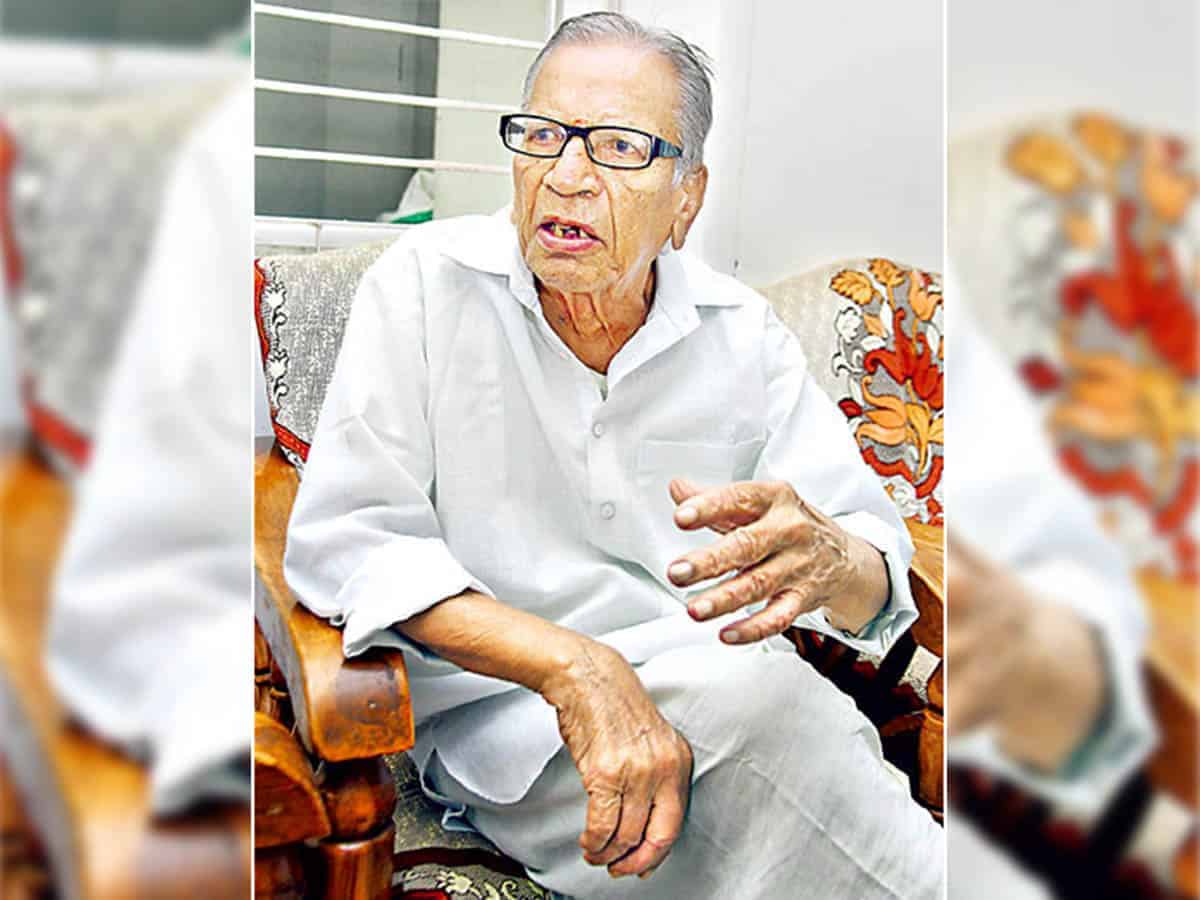Sruthi Vibhavari
Hyderabad: On Sunday (July 26), 93-year old Garlapati Raghupati Reddy, a leader in the Telangana Armed Struggle passed away after prolonged illness. He was a school-going student when he entered the armed struggle against the Razakaars and the feudal landlords (zamindars and jaagirdars). He was also the one of the ‘Telangana’s Twelve’, who were awarded a death sentence by a tribunal under the Indian Army in 1948, after Hyderabad State of the Nizam was merged into Indian Union.
Post Hyderabad merger, as many as 100 people who participated in the armed struggle were awarded death sentence. To assess the public response of hanging the leaders, twelve members were selected first. Along with Raghupati Reddy, Domala Janardhan Reddy, Dhulipala Chinna Sathi Reddy, Mere Hanumanthu, Maagi Venkulu, Dasari Narayana Reddy, Vadla Mallaiah, Vadla Paapaiah, Miryala Lingaiah, Kalluri Yellaiah, Gulaam Dastagiri, Samuel — popularly called the Telangana’s Twelve, were chosen for execution on January 21 and January 22 of 1951.
Fifteen days before the execution, all twelve of them were taken to Musheerabad jail. Ravi Narayana Reddy, one of the prominent communist leaders, approached Jawaharlal Nehru to request for the abolition of the death sentence. However, when Nehru asked him to file for a mercy plea, he rejected it by stating that leaders who fought for independence will not plead for mercy.
International pressure was also built on the Indian Government on the possible execution of Telangana’s Twelve. Poets and artists from different countries expressed their opposition in writing to the Prime Minister. Among them were world-renowned singer Paul Robeson and Chilean poet Pablo Neruda.
England Communist Party sent barrister D.N Pritt to argue on their behalf at the Supreme Court. He was supported by popular Indian lawyers Danial Latifi and A.S.R Chari among other legal team members. The judgment was against the Twelve. The apex court said that since Hyderabad was not integrated into India at that time, we could not intervene. The Hyderabad High Court too refused to look into the matter.
Twelve hours before the execution, advocate Latifi brought the presidential orders to cancel the execution along with two army jawans. President Babu Rajendra Prasad, after being explained by Pritt about the wrongful and unconstitutional execution of the young leaders, canceled the hanging and converted their punishment into life imprisonment. Later, the Twelve were shifted to Aurangabad, Gulbarga, and Warangal jails.
Raghupati Reddy, along with others serving the life sentence in Gulbarga jail were released in 1956. Reddy, who was distressed with the split of CPI in 1964, resigned from the party. He, however, remained a sympathizer and vowed that ‘he would die as a communist’ in his autobiography.
Today, only Dhulipala Chinna Sathi Reddy is the only one of the twelve brave men who is alive.

